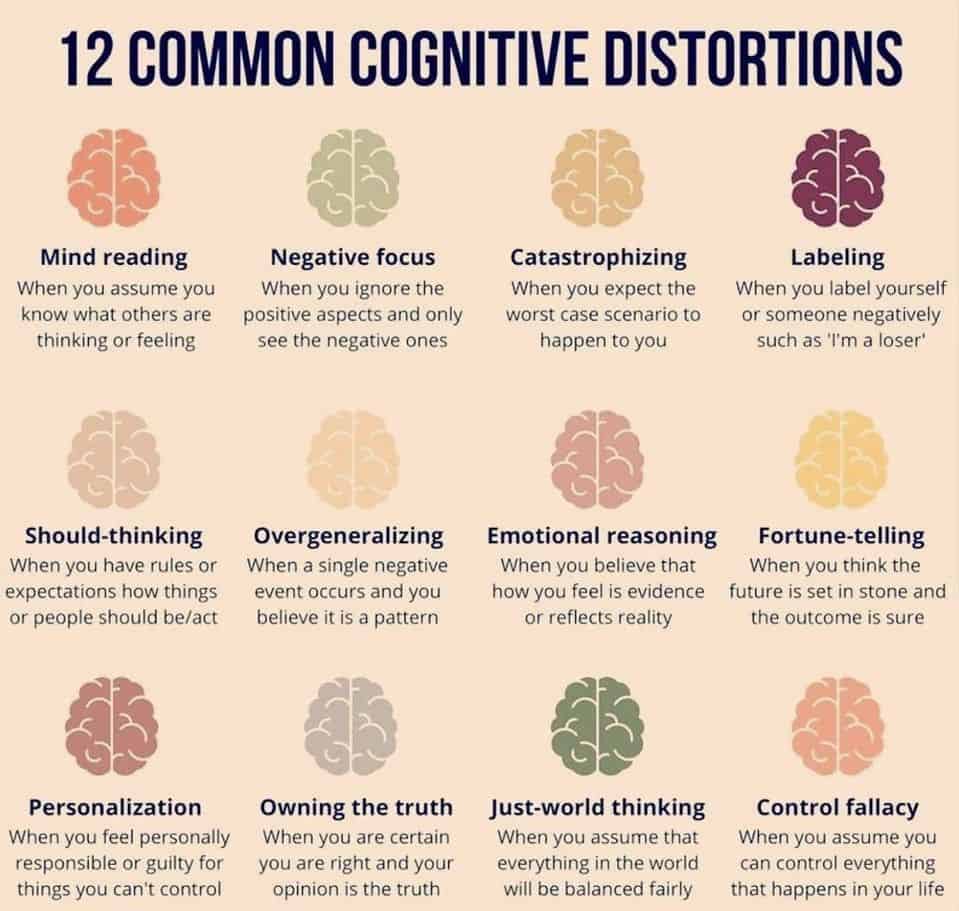A cognitive bias is a systematic error in thinking that occurs when we are processing and interpreting information in the world around us and affects the decisions and judgments that we make.
The human brain is powerful, but subject to limitations. Cognitive biases are often a result of your brain’s attempt to simplify information processing. Biases frequently work as rules of thumb that help you make sense of the world and reach decisions with relative speed.
Occasionally, these biases are fairly obvious, and you might even find that you recognize these tendencies in yourself or others. In other cases, these biases are so subtle that they are almost impossible to notice.
Here are twelve of the most common fallacies – just think back on your past few days and try to spot instances you’ve fallen victim to some of these biases.
Mind Reading
When you assume you know what others are thinking or feeling. Honestly, we constantly do this, driven by stereotypes, experience and sometimes wishful thinking. The problem is that we’re often wrong.
Negative Focus
When you ignore the positive aspects and only see the negative ones. I’m sure you know at least one person who is wired this way. Don’t be too hard on them, please, usually they had a set of bad experiences, or they’ve hit many rough patches. The issue with being overly negative is that it can result in a downward, depressive spiral and can affect motivation and our energy level in general.
Catastrophizing
When you expect the worst-case scenario to happen (to you). This is like a combination of negative focus and fortune-telling—you just KNOW that the worst possible scenario will happen. As a result, you focus on being defensive, trying to protect yourself from the impact, and you lose the forward-looking aspects of what you’re doing.
Labeling
When you label yourself or someone else (typically negatively), e.g., “I’m a loser”. I’ve written in detail about how our stories about ourselves shape our life. Many times, we label others, too, resulting in (negative or positive) prejudice and biases. This can strengthen “mind reading” as well, as we “already know how that person thinks”.
“Should” Thinking
When you have rules or expectations how things or people should be or act. Well, reality is different and people do have their own will.
Overgeneralizing
When a single event occurs, and you believe it to be a pattern. This has a subtle way of interacting with the so-called Frequency illusion.
Emotional Reasoning
When you believe, how you feel is evidence, or it reflects reality. Not acknowledging that our emotions are but reactions, biased and driven by many things, we tend to misunderstand the world around us.
Fortune Telling
When you think the future is set in stone and the outcome is sure. Can result from overgeneralization.
Personalization
When you personally feel responsible or even guilty of things beyond your control.
Owning The Truth
When you’re certain you’re right and your opinion is the truth, your way is the One True Way.
“Just World” Thinking
When you think the world is just and everything will be balanced/rewarded fairly. In reality, the world is much more complex than this.
Control Fallacy
When you assume you can control everything that happens in your life. Interacts with Personalization.




